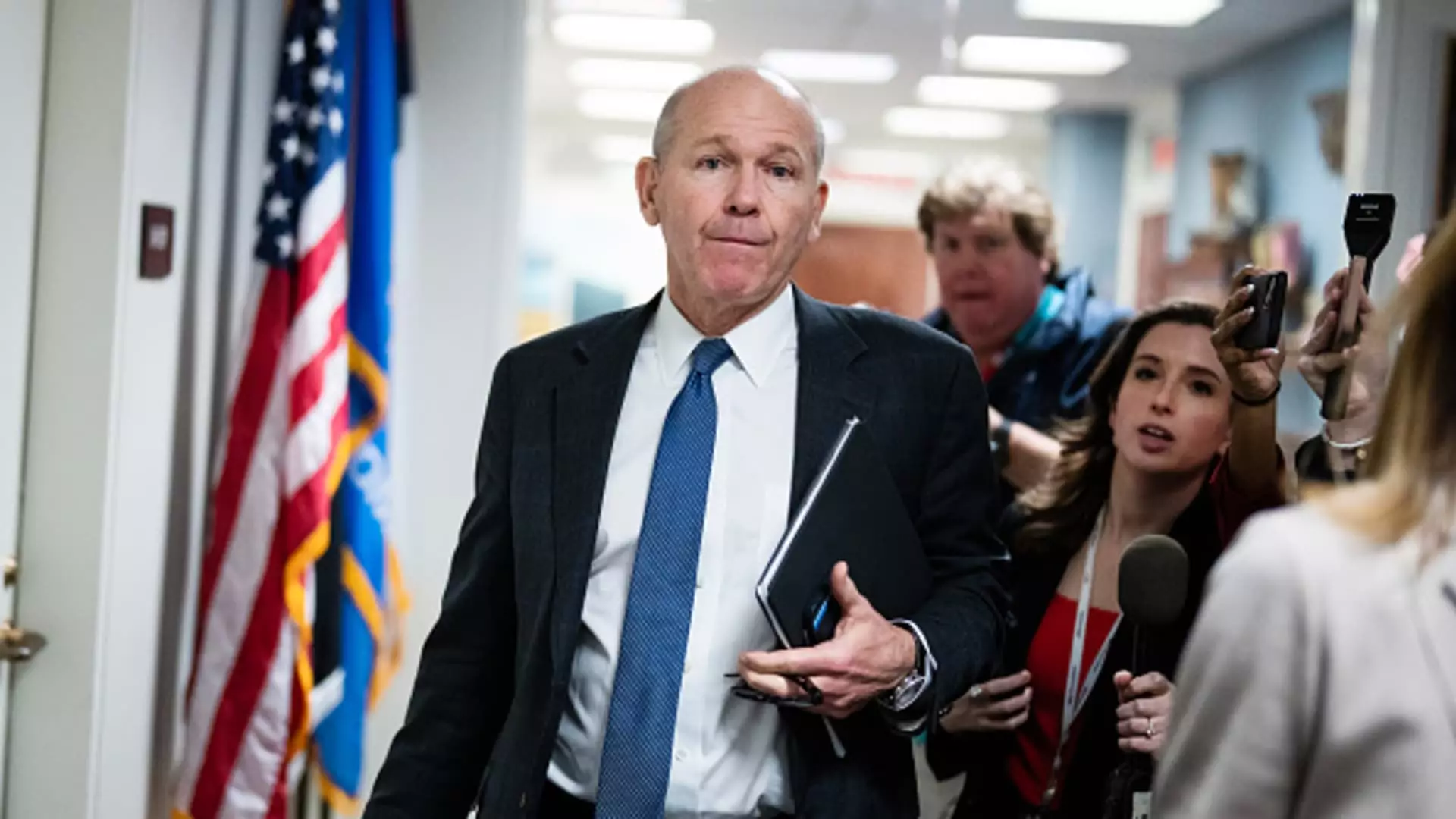Boeing CEO Dave Calhoun’s announcement of his resignation at the end of 2024 marks a significant move in the company’s effort to restructure its leadership team. Alongside Calhoun, other key figures such as Larry Kellner, Stan Deal, and Steve Mollenkopf are also making transitions within the company. This shake-up comes amid increasing pressure from airlines and regulators following a series of quality and manufacturing issues with Boeing planes.
Larry Kellner, chairman of the board, has decided not to stand for reelection at Boeing’s annual meeting in May. In his place, Steve Mollenkopf, a former CEO of Qualcomm and a Boeing director since 2020, will take over as the new chair. Mollenkopf will play a crucial role in leading the board to select a new CEO to replace Calhoun. Additionally, Stan Deal, president and chief executive of Boeing’s commercial airplanes unit, has announced his immediate departure from the company. Stephanie Pope, who recently assumed the role of Boeing’s chief operating officer, will be stepping into Deal’s position.
The departures within Boeing’s leadership team come at a time when airlines and regulators are demanding significant changes within the company. Recent incidents, such as the door plug blowing out of a Boeing 737 Max during an Alaska Airlines flight, have raised concerns about the safety and quality of Boeing planes. The aftermath of these incidents has forced Boeing to address its shortcomings with humility and transparency. Calhoun emphasized the company’s commitment to safety and quality, acknowledging the need for fundamental changes to rebuild Boeing’s reputation.
Challenges Ahead
Calhoun’s tenure as CEO, which began in January 2020, followed the ousting of the previous chief executive, Dennis Muilenburg, after two deadly crashes involving the 737 Max. Since taking on the role, Calhoun has been under pressure to address Boeing’s quality issues and restore investor and customer confidence. The Federal Aviation Administration’s increased oversight, combined with production delays and supply chain disruptions, have posed significant challenges for the company. CEOs of major airline customers, including United Airlines, Southwest Airlines, and American Airlines, have expressed frustration over Boeing’s production issues and quality control.
Airlines like Ryanair have welcomed the management changes at Boeing, believing that new leadership is necessary to address the operational challenges in Seattle, where many of Boeing’s problems have originated. Customer feedback has been critical, with demands for improved manufacturing quality controls and timely aircraft deliveries. The dissatisfaction among airline CEOs has prompted meetings with Boeing directors to voice concerns and seek resolutions to the ongoing production issues. Despite the challenges, Boeing’s stock saw a slight increase following the management announcements, indicating cautious optimism among investors.
The resignation of Boeing CEO Dave Calhoun and the broader management shake-up signal a pivotal moment for the aerospace giant. As Boeing navigates through intense scrutiny from airlines, regulators, and the public, the company faces the critical task of rebuilding trust and ensuring the safety and quality of its aircraft. The upcoming changes in leadership, coupled with a renewed focus on addressing production challenges, will shape Boeing’s trajectory in the aviation industry. It remains to be seen how the company will overcome its current obstacles and emerge stronger from this period of transition.

